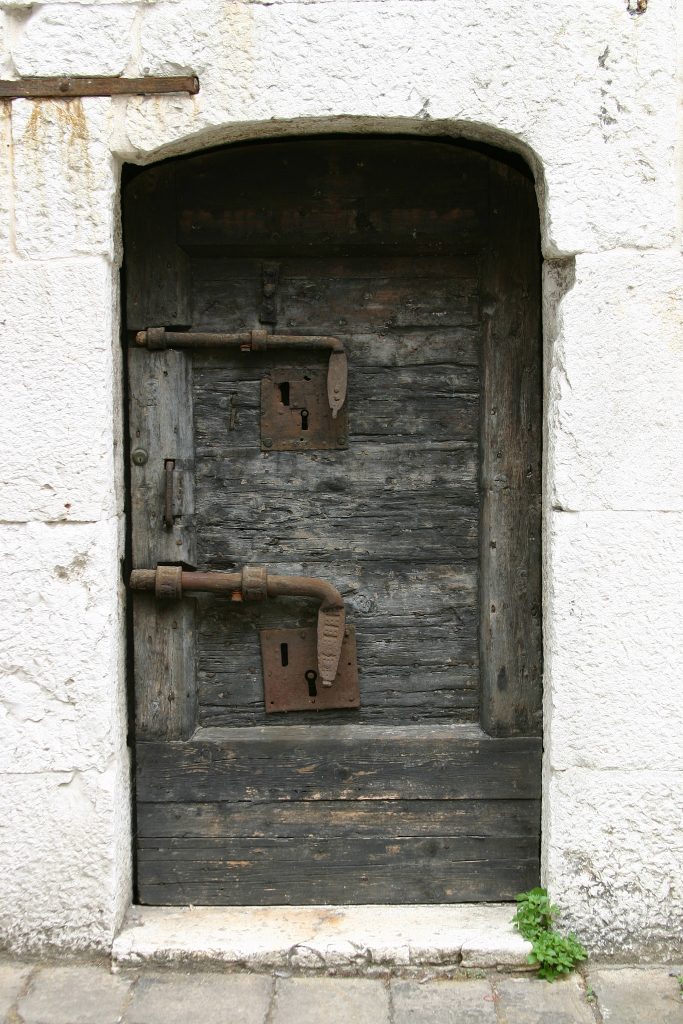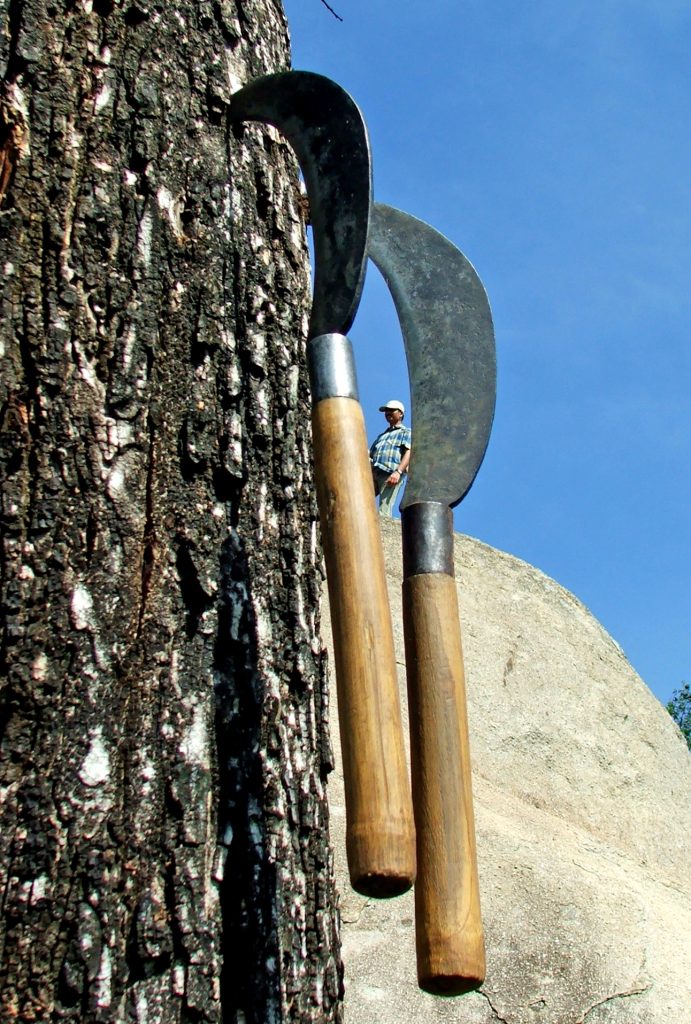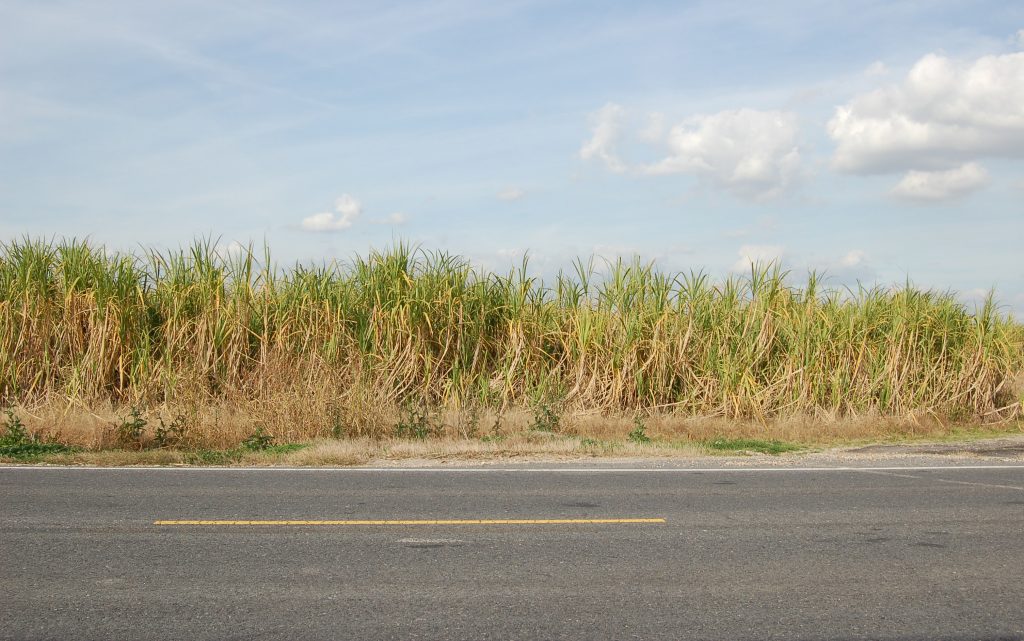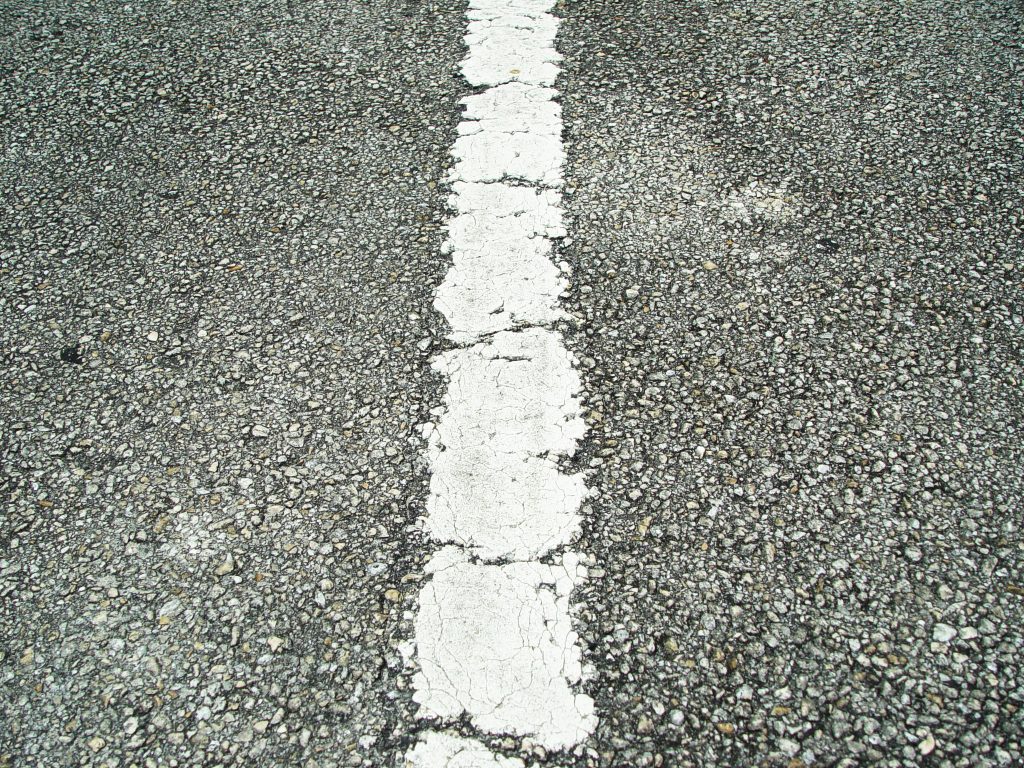 Law abiding citizen or not, people expect local governments to keep them safe, especially from dangerous conditions on public property. But, just how much responsibility do local governments have in keeping public grounds safe? This question was recently answered in a case coming out of Lafayette Parish.
Law abiding citizen or not, people expect local governments to keep them safe, especially from dangerous conditions on public property. But, just how much responsibility do local governments have in keeping public grounds safe? This question was recently answered in a case coming out of Lafayette Parish.
On November 15, 2012, Summer Hunter, an inmate at Lafayette Parish Correctional Facility, was injured while being transported to the courthouse. Prior to the transfer, Ms. Hunter was handcuffed and shackled at the legs. Ms. Hunter was being escorted across the street by a deputy when her leg shackles became entangled on an expansion joint between slabs of the sidewalk. This caused Ms. Hunter to fall, resulting in a fractured ankle.
On November 13, 2013, Ms. Hunter filed a lawsuit in the Fifteenth Judicial District Court against the Lafayette Consolidated Government (“The Parish”) for injuries sustained as a result of the fall. In response, the Parish filed a motion to dismiss Ms. Hunter’s claim. The Parish asserted that it could not liable for Ms. Hunter’s injuries because it was not aware of any problem with the sidewalk prior to the date of her accident. The District Court granted the Parish’s motion to dismiss the lawsuit, finding that Ms. Hunter lacked the ability to present any evidence that the Parish had notice of the dangerous sidewalk. The District Court acknowledged that cities have a responsibility to keep its sidewalk reasonably safe, however, reasonably safe and perfect condition are not synonymous.
 Louisiana Personal Injury Lawyer Blog
Louisiana Personal Injury Lawyer Blog


 Generally, claimants interested in bringing any cause of action are required to stick to certain procedures including filing the claim within a specified time period. Medical malpractice claims are no different. Failure to file a claim within the statutorily imposed time frame will likely result in the dismissal of that claim. Without even considering liability, a court will be forced to terminate a lawsuit merely because it was filed too late. This, unfortunately, was the case for Linda Snavely in a recent case out of Lafayette.
Generally, claimants interested in bringing any cause of action are required to stick to certain procedures including filing the claim within a specified time period. Medical malpractice claims are no different. Failure to file a claim within the statutorily imposed time frame will likely result in the dismissal of that claim. Without even considering liability, a court will be forced to terminate a lawsuit merely because it was filed too late. This, unfortunately, was the case for Linda Snavely in a recent case out of Lafayette.  The workers’ compensation system exists to compensate employees when a work-related accident occurs. Frequently, however, employers will attempt to deny or at least curtail benefits. One common tactic is to blame an employee’s injuries on a pre existing medical condition rather than the work accident. But does this excuse really work when a tree falls on an employee’s head? As far fetched as it sounds, this was the scenario when an Ouachita Parish employer attempted to stop paying benefits after a tree accident.
The workers’ compensation system exists to compensate employees when a work-related accident occurs. Frequently, however, employers will attempt to deny or at least curtail benefits. One common tactic is to blame an employee’s injuries on a pre existing medical condition rather than the work accident. But does this excuse really work when a tree falls on an employee’s head? As far fetched as it sounds, this was the scenario when an Ouachita Parish employer attempted to stop paying benefits after a tree accident.  Imagine you are in a car accident, one that is so severe it results in you being airlifted to a hospital. Recovery time is extensive and your mental capacities are foggy at a minimum. While hospital bound, someone other than yourself files a claim for your workers’ compensation benefits. Due to the hospital stay, you receive no notice of the claim or court hearings yet a decision is made denying benefits. The real kicker? All this occurs in a state where you do not live. Sound a tad unjust? Yet this recently happened to a Kaplan, Louisiana man.
Imagine you are in a car accident, one that is so severe it results in you being airlifted to a hospital. Recovery time is extensive and your mental capacities are foggy at a minimum. While hospital bound, someone other than yourself files a claim for your workers’ compensation benefits. Due to the hospital stay, you receive no notice of the claim or court hearings yet a decision is made denying benefits. The real kicker? All this occurs in a state where you do not live. Sound a tad unjust? Yet this recently happened to a Kaplan, Louisiana man.  Automobile accidents are an unfortunately common occurrence; becoming increasingly more common with the temptations of texting and social media use while driving. While not all accidents result in life-threatening injuries, they do most often come with at least the headache of assigning fault. Figuring out who was at fault sometimes comes down to a game of “he said, she said” before a judge or jury. And as the Louisiana Fifth Circuit Court of Appeal recently explained, the judge or jury’s interpretation of that game is difficult to reverse.
Automobile accidents are an unfortunately common occurrence; becoming increasingly more common with the temptations of texting and social media use while driving. While not all accidents result in life-threatening injuries, they do most often come with at least the headache of assigning fault. Figuring out who was at fault sometimes comes down to a game of “he said, she said” before a judge or jury. And as the Louisiana Fifth Circuit Court of Appeal recently explained, the judge or jury’s interpretation of that game is difficult to reverse.  When someone dies because of another person’s negligence certain individuals can bring a wrongful death lawsuit against the negligent party. Normally, those who may recover under a claim for wrongful death and survival are limited to a certain class of persons. In such cases, the plaintiff can be the surviving spouse, a surviving child, the decedent’s parents, the decedent’s siblings, or the decedent’s grandparents.
When someone dies because of another person’s negligence certain individuals can bring a wrongful death lawsuit against the negligent party. Normally, those who may recover under a claim for wrongful death and survival are limited to a certain class of persons. In such cases, the plaintiff can be the surviving spouse, a surviving child, the decedent’s parents, the decedent’s siblings, or the decedent’s grandparents.  Medical malpractice suits are notorious in the legal community as being difficult and expensive cases. One reason why these cases are so difficult is because lawyers must hire and rely on numerous experts to argue why a professional should, or should not be, liable. But what happens when a plaintiff in a medical malpractice suit cannot find an expert to support his or her claim? A recent medical malpractice case involving a gynecologist illustrates this exact problem.
Medical malpractice suits are notorious in the legal community as being difficult and expensive cases. One reason why these cases are so difficult is because lawyers must hire and rely on numerous experts to argue why a professional should, or should not be, liable. But what happens when a plaintiff in a medical malpractice suit cannot find an expert to support his or her claim? A recent medical malpractice case involving a gynecologist illustrates this exact problem. Sometimes judges and juries make mistakes that prevent injured parties from obtaining the relief they deserve. Both judges and juries can be swayed by arguments and make rulings that seem contrary to the weight of the evidence presented at trial. In such a situation, it is important to have an
Sometimes judges and juries make mistakes that prevent injured parties from obtaining the relief they deserve. Both judges and juries can be swayed by arguments and make rulings that seem contrary to the weight of the evidence presented at trial. In such a situation, it is important to have an  In law, deadlines and rules of procedure are very important. Good cases can be lost because someone missed a deadline or did not understand and follow a procedural rule. That is why it is so important to ensure you have a good attorney who understands the rules of procedure and who keeps close track of deadlines, especially those for appeals.
In law, deadlines and rules of procedure are very important. Good cases can be lost because someone missed a deadline or did not understand and follow a procedural rule. That is why it is so important to ensure you have a good attorney who understands the rules of procedure and who keeps close track of deadlines, especially those for appeals. Imagine buying land and then realizing that it was already occupied. What can the purchaser do when faced with this situation? What rights do the occupants of the purchased land have? Recently, the Third Circuit Court of Appeal for the State of Louisiana addressed these questions when deciding whether Saline Lakeshore, LLC (Saline Lakeshore) owned Horse Island after it purchased the property.
Imagine buying land and then realizing that it was already occupied. What can the purchaser do when faced with this situation? What rights do the occupants of the purchased land have? Recently, the Third Circuit Court of Appeal for the State of Louisiana addressed these questions when deciding whether Saline Lakeshore, LLC (Saline Lakeshore) owned Horse Island after it purchased the property.